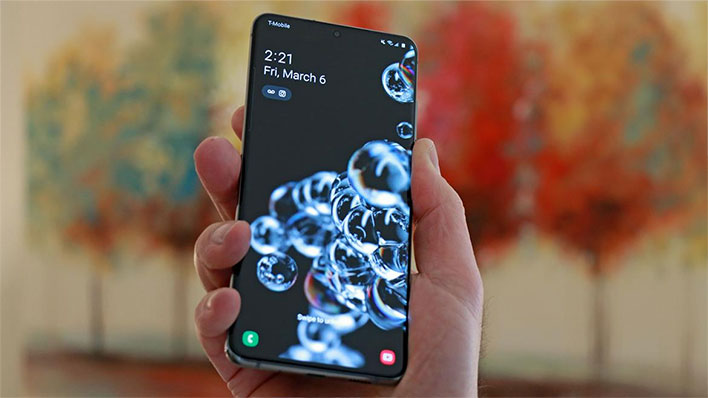Samsung Braces For Significant Decline In Galaxy Phone And TV Demand Due To COVID-19

Samsung reported its first quarter earnings for 2020, noting it saw a 7.6 percent decrease in revenue compared to the previous quarter primarily due to weak seasonality of its display business and consumer electronics division. However, the company also blamed the "effects of COVID-19" for the drop in demand, and said it expects the virus outbreak to "significantly impact" sales for several of its core products, including Galaxy phones and TVs.
"Sales and profits of set products business, including smartphones and TVs, are expected to decline significantly as COVID-19 affects demand and leads to store and plant closures globally. To address this, the company will leverage its global production flexibility and supply networks as well as strengthening its online sales capabilities," Samsung said.
Obviously the loss of life is the primary concern related to COVID-19, and that should not be overlooked. Beyond that, however, the Coronavirus pandemic is affecting business operations around the globe. As it pertains to Samsung, the company is seeing the financial impact of stores and plants closing down in an effort to contain the virus.
Looking ahead, it's difficult to predict how things will go, in part because there is much we still don't know about the virus. Samsung acknowledged this as well, in a roundabout away.
"In the second half, uncertainties driven by COVID-19 will persist as the duration and impact of the pandemic remain unknown. The company plans to focus on optimizing resource allocation in the short term, while continuing to strengthen its technology leadership and develop innovative set products," Samsung said.
It's not all bad news for Samsung. One of the company's strengths is having a diverse product portfolio, rather than putting all its eggs in one shaky basket. As such, Samsung said it saw "solid demand" for its memory products "despite weak seasonality and the effects of COVID-19." Samsung credited its continued investments in 5G infrastructure, as well as increased demand from cloud applications related to remote working and online education, as reasons why its memory business did well.
This was mostly driven by DRAM demand within the datacenter sector. However, Samsung noted "relatively solid" demand for its NAND flash memory products in the mobile sector as well, due to manufacturers adopting high-density storage greater than 128GB.
"For the second half, while mobile demand—most affected by COVID-19—remains as one of the uncertainties, overall memory conditions are likely to be favorable due to server and PC demand for a faster and more reliable cloud service experience. However, a prolonged COVID-19 crisis poses risks of reduction in overall demand," Samsung said.
Samsung also reiterated that it is winding down its LCD business, in favor of producing OLED panels. It will be interesting to see how this shift ultimately affects the company's bottom line.

